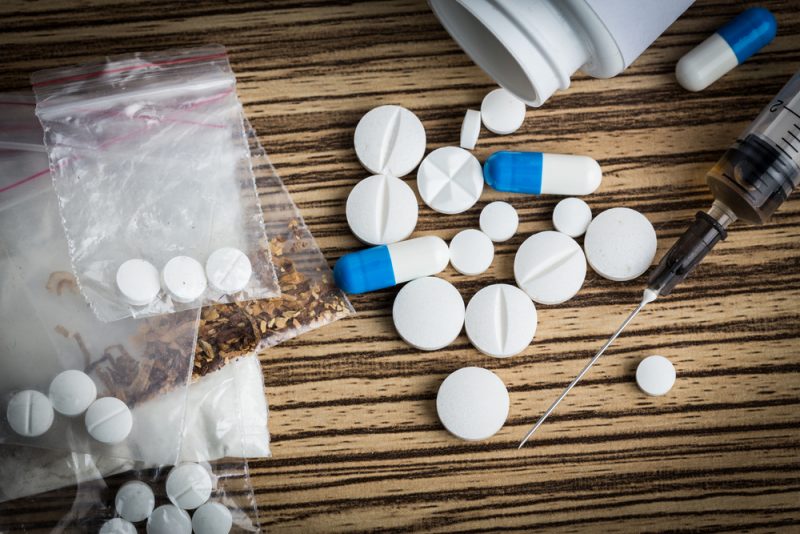Community
$11.7 million awarded for drug epidemic in Massachusetts
BOSTON – The Baker-Polito Administration announced Thursday that Massachusetts has received an $11.7 million federal grant to continue its public health response to the opioid epidemic and bolster community overdose prevention, outpatient opioid treatment, and recovery services across the Commonwealth. This is the second consecutive year the state has received the funding, bringing the two-year total to $23.8 million.
“The opioid and heroin epidemic have led to heartbreaking addiction and losses for too many families in the Commonwealth, and this critical funding will increase support for important services like recovery coaches and medication-assisted treatment,” said Governor Baker. “Massachusetts is one of the only states in the nation to see a slight decrease in opioid-related deaths, but there is much work to be done to address this public health crisis, including passage of our administration’s bill, the CARE Act, to build on opioid prevention, intervention, recovery and treatment.”
“Crucial funding programs like this and our administration’s pending legislation, the CARE Act, will allow Massachusetts to dedicate resources for programs that work and lead to long-term recovery results for Massachusetts families and individuals who are fighting addiction,” said Lieutenant Governor Karyn Polito.
This grant, from the Substance Abuse and Mental Health Services Administration (SAMHSA), is the second round of funding authorized under the 21st Century Cures Act, signed into law in December 2016. The funds address the opioid crisis by increasing access to treatment, reducing unmet treatment needs, and reducing opioid overdose-related deaths through the provision of prevention, treatment and recovery activities for opioid use disorder. It supports existing statewide services managed by the Massachusetts Department of Public Health’s (DPH) Bureau of Substance Addiction Services.
“We continue to implement the Governor’s Blueprint across the public health spectrum from prevention, intervention, treatment and recovery. Our current efforts target particularly high risk populations, including pregnant and parenting women and previously incarcerated individuals,” said Health and Human Services Secretary Marylou Sudders. “This grant will support access to treatment and recovery support services, as well as crucial prevention efforts currently underway.”
In addition to this new federal funding, through administrative actions, the Baker-Polito Administration will invest up to $219M over five years from the state’s 1115 Medicaid waiver, starting in the fiscal year 2018, to meet the needs of individuals with addictions and/or co-occurring disorders. These funds will expand residential recovery services, increase access to medication-assisted treatment, add new recovery coaches and navigators, and implement a consistent clinical assessment tool throughout the treatment system. Since 2015, the Baker-Polito Administration has doubled spending to address the opioid crisis and added more than 1,100 treatment beds, including 748 adult substance use treatment beds at different treatment levels, and certified more than 162 Sober Homes accounting for an additional 2,184 beds.
“This new funding is vital to our efforts to expand our prevention, intervention, treatment and recovery programs and services so we can continue to promote solutions that help stem the tide of this deadly, preventable disease,’’ said Public Health Commissioner Monica Bharel, MD, MPH.
Key components of the grant funding include:
Overdose Prevention Initiatives
· Increase outreach, education and training on overdose prevention and naloxone through the Overdose Education and Naloxone Distribution (OEND) program in communities with a significant number of opioid overdoses.
· Expand and enhance community first responder initiatives to provide follow-up, in-person, outreach and support services after 911 calls for an overdose.
· Provide overdose prevention training and technical assistance for health and human services providers throughout Massachusetts
· Improve access to naloxone at pharmacies throughout the state.

· Bolster the Opioid Access to Recovery (ATR) program focused on individuals affected by opioid addiction in the cities of Boston, Springfield, Worcester and New Bedford.
· Expand access to the Office-Based Opioid Treatment (OBOT) at currently funded community-based sites.
· Improve re-entry treatment and recovery support services for previously incarcerated individuals at correctional facilities, including access to pre-release Medication-Assisted Treatment (MAT), treatment and recovery planning, and post-release linkages to services, recovery support and case management.
· Increase access to peer-support programming, including coaching, to assist pregnant, post-partum and parenting women with their recovery.
In November, the Baker-Polito Administration announced its second major legislative effort, known as the CARE Act, targeting the opioid crisis since taking office. The plan includes increasing access to treatment and recovery services, addressing gaps in the care provided after detoxification, strengthening education and prevention efforts, and securing regulatory relief from the federal government to increase treatment access.





You must be logged in to post a comment Login